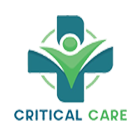- Home
- Departments
Departments Of Best-Critical-Care-Team
Best-Critical-Care-TeamCreating the best critical care team involves assembling a group of highly skilled healthcare professionals who work collaboratively to provide optimal care for critically ill patients. Here are the key components of a top-tier critical care team:
1. Intensivists: These physicians specialize in critical care medicine and lead the multidisciplinary team. They have expertise in managing complex medical conditions, coordinating care, and making critical decisions regarding patient treatment and management.
2. Critical Care Nurses: Critical care nurses play a central role in the day-to-day care of critically ill patients. They possess advanced clinical skills and training in areas such as hemodynamic monitoring, mechanical ventilation, medication administration, and wound care. Their vigilance, attention to detail, and ability to anticipate and respond to changes in patient condition are crucial for ensuring patient safety and optimizing outcomes.
3. Respiratory Therapists: Respiratory therapists are responsible for managing the respiratory needs of critically ill patients, including administering oxygen therapy, performing airway management procedures, and managing mechanical ventilation. Their expertise in respiratory assessment, ventilator management, and pulmonary function testing is essential for optimizing oxygenation and ventilation in critically ill patients.
4. Pharmacists: Clinical pharmacists with expertise in critical care play a vital role in medication management for critically ill patients. They collaborate with the healthcare team to ensure appropriate selection, dosing, and administration of medications, as well as monitoring for drug interactions, adverse effects, and therapeutic efficacy. Pharmacists also contribute to medication reconciliation, antimicrobial stewardship, and patient education.
5. Nutritionists/Dietitians: Nutritionists or dietitians specializing in critical care provide nutritional assessment and support for critically ill patients. They work closely with the healthcare team to develop individualized nutrition plans, monitor nutritional status, and optimize enteral or parenteral feeding regimens to meet the metabolic needs of critically ill patients and promote recovery.
6. Physical Therapists/Occupational Therapists: Physical therapists and occupational therapists play a crucial role in promoting mobility, rehabilitation, and functional recovery in critically ill patients. They assess patients' physical and functional status, implement tailored exercise programs, and provide interventions to prevent complications such as muscle weakness, contractures, and pressure ulcers associated with prolonged critical illness.
7. Social Workers: Social workers provide valuable support to critically ill patients and their families by addressing psychosocial needs, coordinating discharge planning, and facilitating access to community resources and support services. They advocate for patients' rights, assist with advance care planning, and provide counseling and emotional support during times of crisis.
8. Interdisciplinary Team Collaboration: Effective communication and collaboration among members of the critical care team are essential for providing coordinated and comprehensive care to critically ill patients. Regular interdisciplinary team meetings, case conferences, and huddles facilitate information sharing, problem-solving, and decision-making, ultimately improving patient outcomes.
By bringing together a diverse team of dedicated professionals with complementary skills and expertise, healthcare organizations can ensure that critically ill patients receive the highest quality of care in the intensive care unit (ICU) setting.

